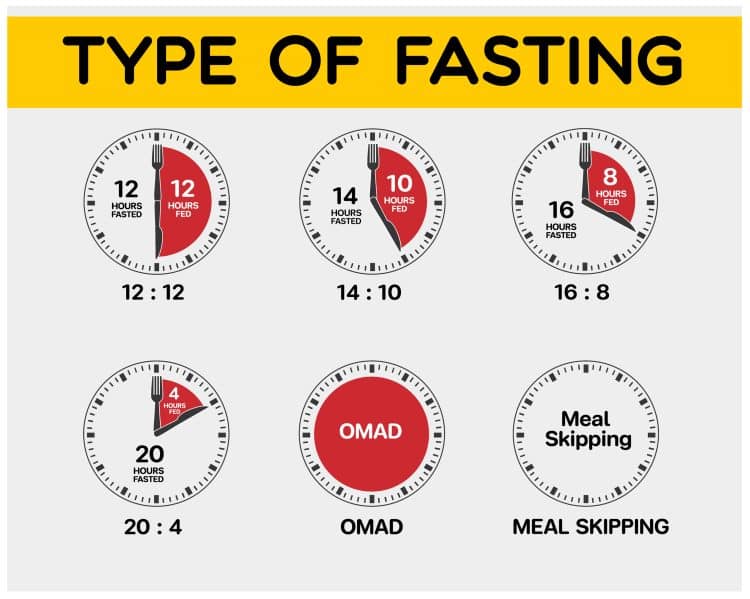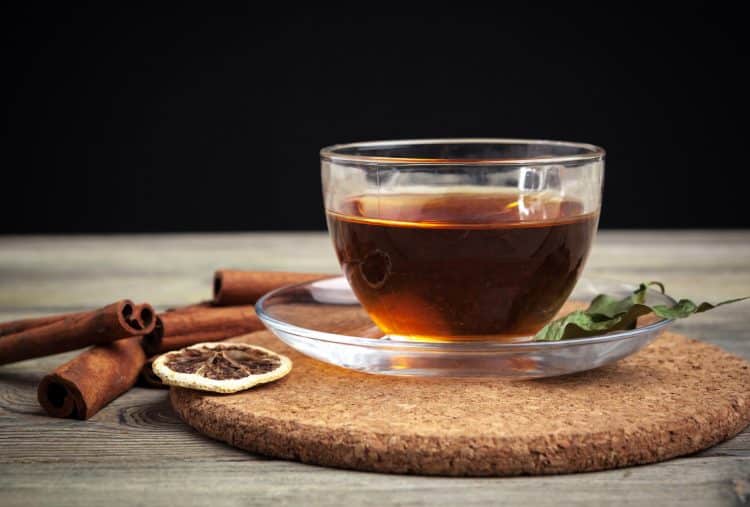Whether it’s the scrumptious apple pie or lip-smacking Thai curry, a pinch of cinnamon can do wonders for any dish. This popular spice has tons of health benefits that compel people to incorporate it in their tea and other beverages.
What makes it popular amongst intermittent fasters is its ability to control blood sugar levels and aid in the weight loss journey. However, knowing which food can break the fast is important when you’re on an intermittent fasting journey.
If you’re a cinnamon lover wondering whether it can break your fast, read on for all the facts.
Will This Break Your Fast?
Find out if coffee, tea, sweeteners, and other drinks break your fast based on your specific fasting goals.
Check What Breaks My Fast →Can Cinnamon Break Your Fast?
Many people enhance their beverages with a pinch of cinnamon, not just for its rich flavor but also for its impressive nutritional benefits. This versatile spice is a rich source of polyphenols that act as a protective shield against free radical damage.
But there’s a common question: does cinnamon break your fast?
The straightforward answer is no. Consuming cinnamon doesn’t interrupt fasting. To understand this, let’s break down the nutritional value of cinnamon.
According to the U.S. Department of Agriculture, one teaspoon of cinnamon contains:
- Energy: 6.42 calories
- Calcium: 26.1 mg
- Carbs: 2.1 g
- Iron: 0.21 mg
- Phosphorus: 1.66 mg
- Magnesium: 1.56 mg
- Potassium: 11.2 mg
- Vitamin A: 0.39 micrograms
It’s clear from this list that cinnamon does have some calories in it. Hence, many might wonder whether its consumption is safe for their fast. Well, it’s safe because the amount of calories you’ll get with one teaspoon is so little that it will hardly make a difference in your total calorie intake.
Also, this is the calorie details of one teaspoon. No one uses that much quantity in one cup of tea. We generally use only one pinch of cinnamon in our drinks and food.
Adding 1 gram of carbs to your drinks is considered safe as this quantity doesn’t impact your insulin levels. So, you can add cinnamon to your tea and drinks without guilt.
Adding a pinch of cinnamon to your drink, especially on your hot drinks, will spice up your beverages, make you feel satisfied, and provide tons of other health benefits.
Benefits of Cinnamon
Advantages of cinnamon consumption include:
Helps Control Cravings
Cravings are one of the biggest challenges individuals observing IF face, especially beginners. They struggle to keep their hands off food.
Cinnamon is a fiber-rich spice that will help you control your appetite by keeping you full for longer. [2]
Supplies Antioxidants
Cinnamon is an antioxidant powerhouse [3]. It is rich in polyphenols and helps the body fight free radical damage. Hence, you’re less likely to face metabolic illness.
Promotes Cardiovascular Health
Recent research has confirmed that regular cinnamon consumption can help individuals lower LDL-cholesterol and HDL-cholesterol levels. In addition, it can bring down the elevated level of fasting insulin and glucose. All these things will help you have better heart health. [4]
Improves Mental Health
Cinnamon can improve cognitive functions like learning and memory. Regularly using cinnamon can trim down tau aggregation and boost cell viability.
Furthermore, it can help control the symptoms of Parkinson’s and Alzheimer’s disease. [5]
Intermittent Fasting — The Key Concept
Intermittent Fasting, or IF, is a popular time-restricted eating pattern wherein the observers can consume meals only during a specified time window and must restrict calorie consumption for the rest of the day.
The eating window can vary based on the type of IF method you’re following. For instance, in the 16/8 fasting method, people can eat only in an eight-hour window and fast for the remaining 16 hours.
Similarly, you have a 20/4 IF method, an advanced IF version. In this, people have to fast for 20 hours and eat in a four-hour window. Known as the Warrior Diet, this is a great way to reduce belly fat.
Different intermittent fasting methods include:
- The 5:2 diet involves eating normally five days a week and restricting calorie intake to around 500-600 calories on two non-consecutive days.
- The Eat-Stop-Eat eating pattern comprises fasting 24 hours once or twice a week.
- The alternate-day fasting method encourages participants to alternate between fasting and regular eating days.
- OMAD (One Meal a Day) involves consuming one large meal during a one-hour window and fasting for the remaining 23 hours.
While many different approaches exist, the core principle behind every eating approach is to control calorie intake.
Now, why control the calories? When individuals don’t consume calories for a specific time, their bodies start burning stored fat for energy. As fatty acids are broken down, the liver starts producing a large quantity of ketones. These ketones become the fuel source for your body and push the body into ketosis. This metabolic stage brings several benefits, including:
- Weight loss as stored fat is used for energy.
- Improved blood sugar levels as low carbohydrate intake stabilizes the blood sugar levels and reduces the need for frequent insulin spikes.
- Better mental clarity as ketones are used for energy without any glucose metabolism.
- Stable energy levels as ketosis offers sustained energy with fewer energy fluctuations.
- Refined cardiovascular health as ketosis leads to reduced triglyceride and HDL cholesterol levels. [1]
This is just a glimpse of the endless benefits of IF. IF is here to make things better for you, provided you observe it the right way.
The first thing you can do is ensure you’re not consuming calories during the fasting window. However, you’re allowed zero-calorie or low-calorie drinks. For instance, water, green tea, and black coffee are permitted. Here is a list of 50 zero-calorie foods you can consume while fasting.
How to Include Cinnamon in Your IF Routine?
Cinnamon is a versatile spice that makes your drinks more flavorful. Here is how you can incorporate it into your IF routine:
Bulletproof Coffee
Bulletproof coffee is a tasty treat that you can have during your fasting windows. Other than black coffee and unsalted butter, you can add a pinch of cinnamon to it and take its flavor to a whole new level. As it’s a keto-friendly drink, it won’t impact blood sugar and will keep insulin levels balanced.
Cinnamon Water
You can add cinnamon to your water and have it throughout the day. Grounded cinnamon bark is a great way to lower body inflammation. I encourage you to continue drinking this magical potion even when you’re not fasting, as it can curb hunger pangs and help prevent mindless eating.
Cinnamon Tea
Homemade cinnamon tea is an easy way to incorporate this wonderful spice into your routine. Add a cinnamon stick or half a teaspoon of ground cinnamon to a cup of hot water to prepare cinnamon tea.
While consuming cinnamon during fasting is generally safe and well tolerated, some individuals might be sensitive to cinnamon on an empty stomach and may experience gastrointestinal upset or allergic reactions.
If you experience symptoms such as swollen airways or difficulty breathing after consuming cinnamon, you must consult a healthcare provider immediately.
Things to Consider While Using Cinnamon During Intermittent Fasting
While getting excited about cinnamon after hearing its benefits is easy, you must avoid making random moves. Some people have trouble consuming cinnamon on an empty stomach. They might experience gastrointestinal discomforts like stomach aches, bloating, gas, or nausea. While only a few individuals will face these issues, you must be careful.
Very rarely, consumption of cinnamon leads to allergic reactions. As a result, people might experience skin rashes, hives, and even itching. So, you must check whether you’re allergic to cinnamon by starting with a very small dose. I recommend one-fourth of a teaspoon.
Moderation is the key here, as cinnamon is not a zero-calorie spice. It’s a low-calorie spice, and you shouldn’t consume a lot of it during your fast. A pinch or a drizzle is enough for one cup of tea or any other beverage.
Consuming it in excessive amounts might hinder your IF results. Also, add it to one dish or beverage at a time. For example, if you have cinnamon water throughout the day, it’s better not to use it on your food or salads.
FAQs
Does Cinnamon Break Intermittent Fasting?
No, cinnamon in your drink doesn’t disrupt your fast. Instead, it might reduce cravings when added to teas, bulletproof coffee, or water, potentially extending your intermittent fasting period.
Is it safe to consume cinnamon during intermittent fasting?
Yes, you can consume cinnamon while IF. As it’s a low-calorie spice, it won’t disturb your insulin levels.
How many calories are present in one teaspoon of cinnamon?
With one teaspoon of cinnamon, you will get approximately six calories.
How much cinnamon is enough during fasting?
One should not consume more than one teaspoon during IF.
Is cinnamon good for blood sugar?
Yes, cinnamon is good for blood sugar as it will help increase your metabolism and regulate your sugar level.
Wrapping Up
Other than staying committed and controlling cravings, eating right and controlling calorie intake is key during intermittent fasting.
If you win on these fronts, the endless benefits of intermittent fasting are yours. Cinnamon is a popular spice that can enrich your drinks and food with great taste and aroma, even while intermittent fasting.
As it’s a low-calorie food, you need to keep the quantity in control. Sticking to one teaspoon per day of cinnamon can help promote weight loss, reduce blood sugar levels, and control food cravings.
References
Fitness Volt is committed to providing our readers with science-based information. We use only credible and peer-reviewed sources to support the information we share in our articles.
- Mandal, S., Simmons, N., Awan, S., Chamari, K., & Ahmed, I. (2022, January 1). Intermittent fasting: eating by the clock for health and exercise performance. BMJ Open Sport and Exercise Medicine; BMJ.
- Da Costa Soares, A. P., De Faria, N. C., Graciano, G. F., Santos, A. L. S. D., Del Carmen Valenzuela, V., Correia, M. I. T., Cosenza, G. P., & Anastácio, L. R. (2022, January 1). Cinnamon Infusion Reduces Satiety and Increases Energy Intake: A Randomized Crossover Trial. Annals of Nutrition and Metabolism; Karger Publishers.
- Anderson, R. A., Zhan, Z. H., Luo, R., Guo, X., Guo, Q., Zhou, J., Kong, J., Davis, P. A., & Stoecker, B. J. (2016, October 1). Cinnamon extract lowers glucose, insulin and cholesterol in people with elevated serum glucose.
- Anderson, R. A., Zhan, Z. H., Luo, R., Guo, X., Guo, Q., Zhou, J., Kong, J., Davis, P. A., & Stoecker, B. J. (2016, October 1). Cinnamon extract lowers glucose, insulin and cholesterol in people with elevated serum glucose. Journal of Traditional and Complementary Medicine; Elsevier BV.
- Nakhaee, S., Kooshki, A., Hormozi, A., Akbari, A., Mehrpour, O., & Farrokhfall, K. (2023, January 18). Cinnamon and cognitive function: a systematic review of preclinical and clinical studies. Nutritional Neuroscience; Maney Publishing.
Tip: If you're signed in to Google, tap Follow.












